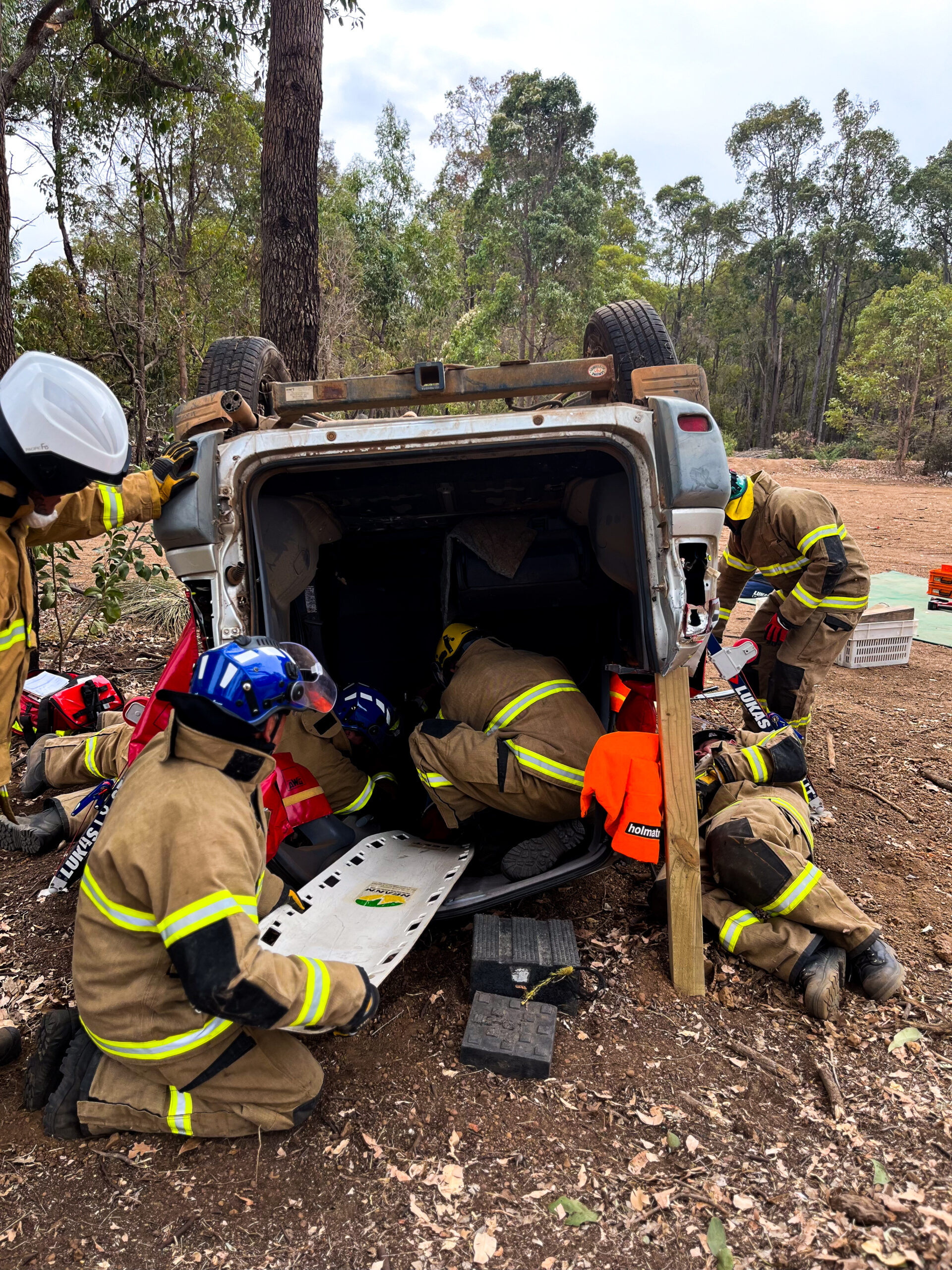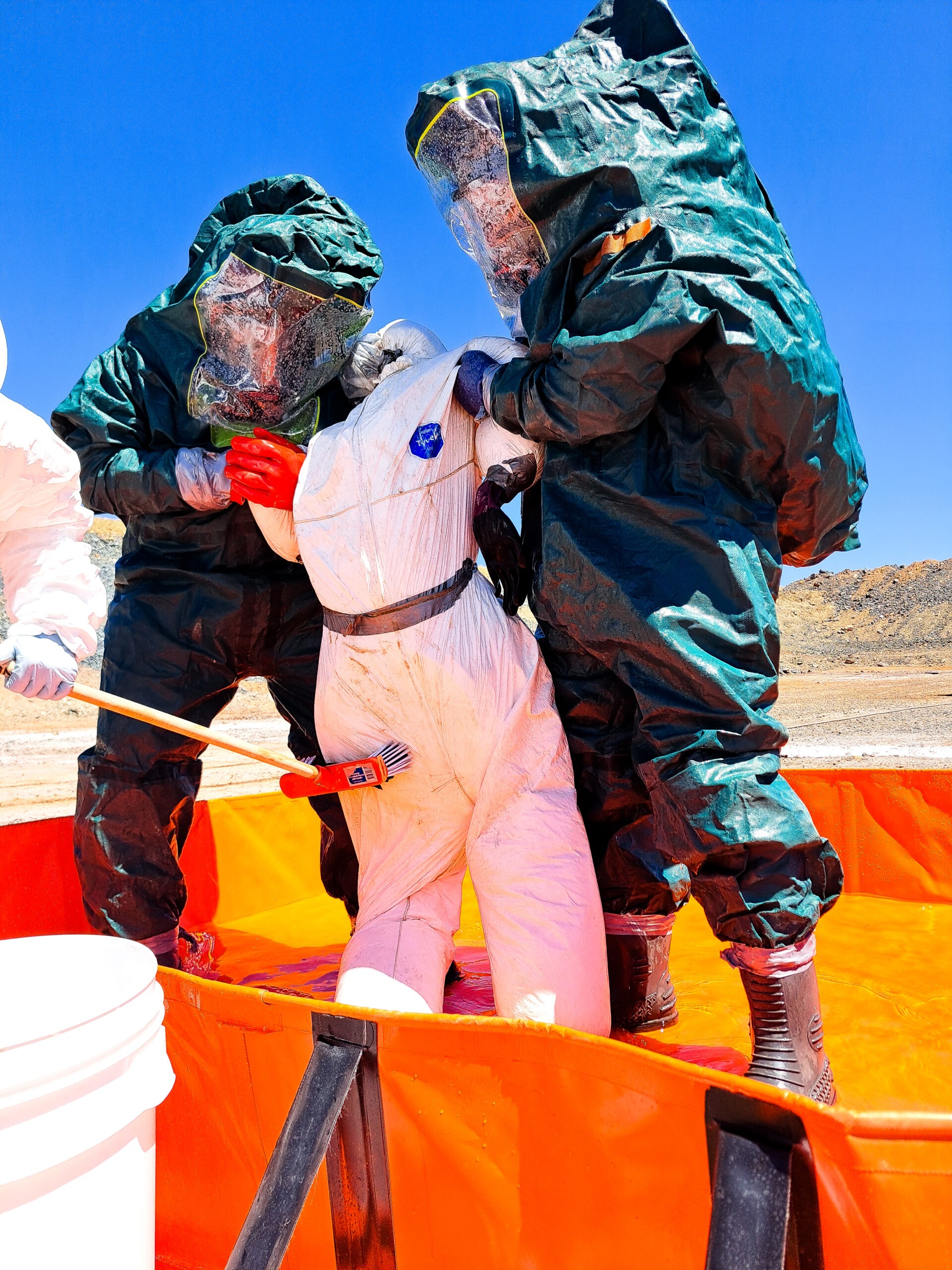Training Plan
Course Information
Course Length: 6 Days
ARG’s Heavy Rescue course is an advanced, nationally recognised training program designed for emergency response professionals operating in high-risk environments such as mining, construction, and heavy industry. The course prepares participants to manage large-scale emergencies involving vehicles, heavy machinery, and compromised structures. With a strong focus on real-world application, the program ensures that trainees gain the technical skills and confidence needed to perform complex rescues safely and effectively under pressure.
Participants will engage in hands-on training across a range of high-risk rescue scenarios, including road crash rescue (PUASAR024), rescue operations (PUASAR022), and local incident response (RIIERR302E). The course also includes specialist training in the identification, monitoring, and neutralisation of hazardous materials (PUAFIR306 and PUAFIR324), providing participants with the knowledge to assess and control chemical or environmental risks at the scene. Strong emphasis is placed on the use of advanced rescue equipment, structured incident coordination, and the ability to communicate effectively within a team environment (RIICOM201E) during dynamic and potentially chaotic situations.
By the end of the course, participants will be capable of leading or supporting complex heavy rescue operations with a focus on safety, technical skill, and clear communication. They will leave prepared to respond confidently to emergencies involving entrapments, mechanical failure, or hazardous material exposure.
Training and Assessment delivered under the auspices and in partnership arrangement on behalf of Health Security & Education Pty Ltd, RTO 40907.


Course Outcomes
Upon successful completion of the Heavy Rescue course, participants will have the advanced knowledge and hands-on skills required to respond to complex emergencies involving heavy vehicles, machinery, and structural incidents. They will be capable of performing safe and effective road crash rescues (PUASAR024), participating in structured rescue operations (PUASAR022), and responding to local emergency incidents (RIIERR302E) in high-risk industrial environments. Trainees will be proficient in using specialised rescue equipment and techniques to manage entrapments and mechanical failures while maintaining strict safety protocols.
In addition, participants will develop the ability to identify, monitor, and render hazardous materials incidents safe (PUAFIR306 and PUAFIR324), enhancing their capacity to manage risks in dynamic and unpredictable conditions. The course also reinforces the importance of clear, effective workplace communication (RIICOM201E) and teamwork, preparing graduates to operate confidently within coordinated emergency response teams. These outcomes ensure that participants are ready to lead or support heavy rescue operations with technical precision, sound judgment, and a strong focus on team and site safety.
Units of Competency
Upon successful completion of the Heavy Rescue course, each student will be awarded a nationally recognised statement of attainment. This certification acknowledges the achievement of key competencies essential for effective emergency response and rescue operations. Additionally, students have the option to roll these units of competency into the RII30719 Certificate III in Emergency Response and Rescue, providing a pathway for further professional development and certification.
Participants who attend and successfully meet all the course assessment requirements will receive a statement of attainment for the following Units of Competency:
- RIICOM201E Communicate in the Workplace
- PUAFIR306 Identify, Detect and Monitor Hazardous Materials at an Incident
- PUAFIR324 Render Hazardous Materials Incidents Safe
- PUASAR022 Participate in a Rescue Operation
- PUASAR024 Undertake Road Crash Rescue
- RIIERR302E Respond to Local Emergencies and Incidents
Pre-Requisites
- PUAFIR207 Operate breathing apparatus open circuit
- HLTAID011 Provide First Aid
- PUASAR022 Participate in a Rescue Operation (this is provided as part of the course)
Ideal pre-requisites for trainees:
Physical Fitness: Adequate physical fitness to participate in physically demanding activities, such as operating firefighting equipment, wearing breathing apparatus, and conducting rescue operations.
Experience in Emergency Response: A background in emergency response, such as experience in a emergency service officer role or involvement in emergency drills is beneficial, to ensure trainees can apply advanced techniques effectively.
Current Safety Certifications: Up-to-date certifications in workplace safety, first aid, or other relevant areas to ensure preparedness for the risks involved in rescue operations.
